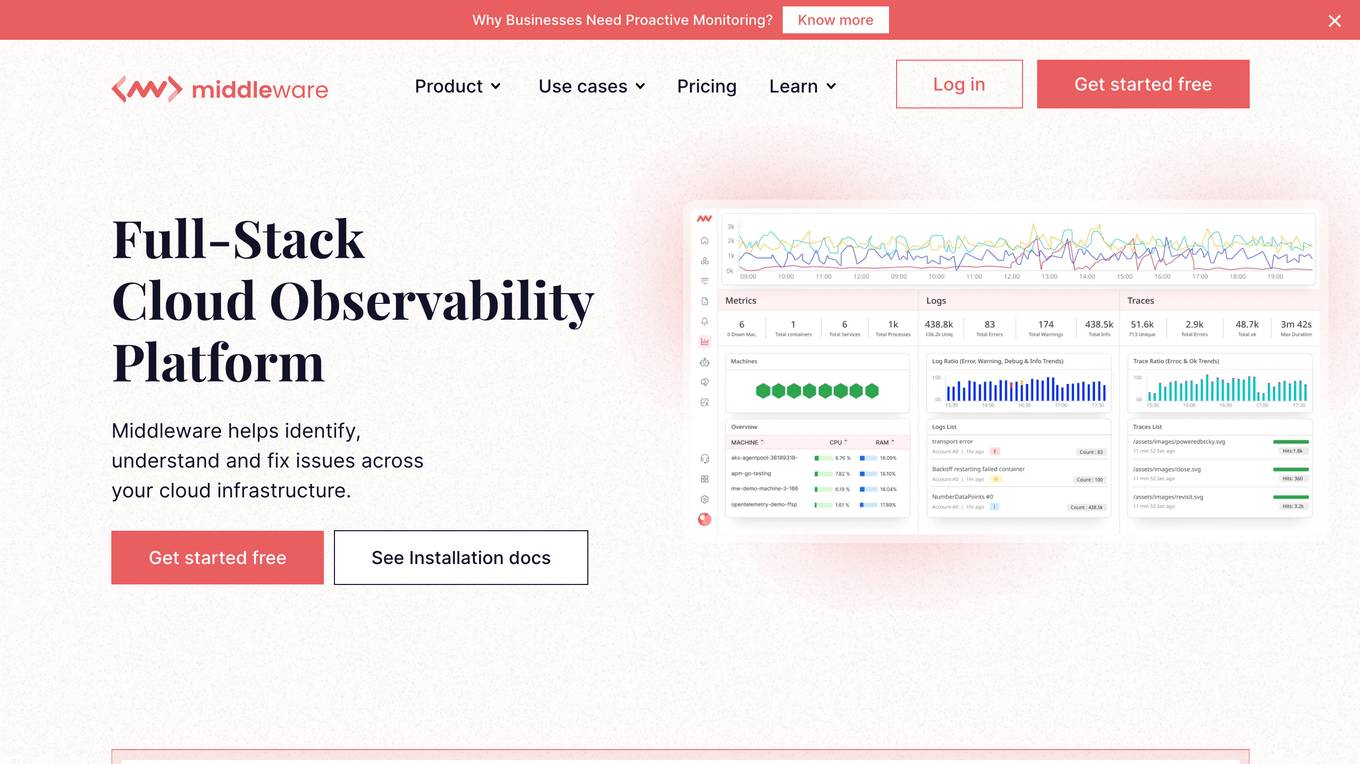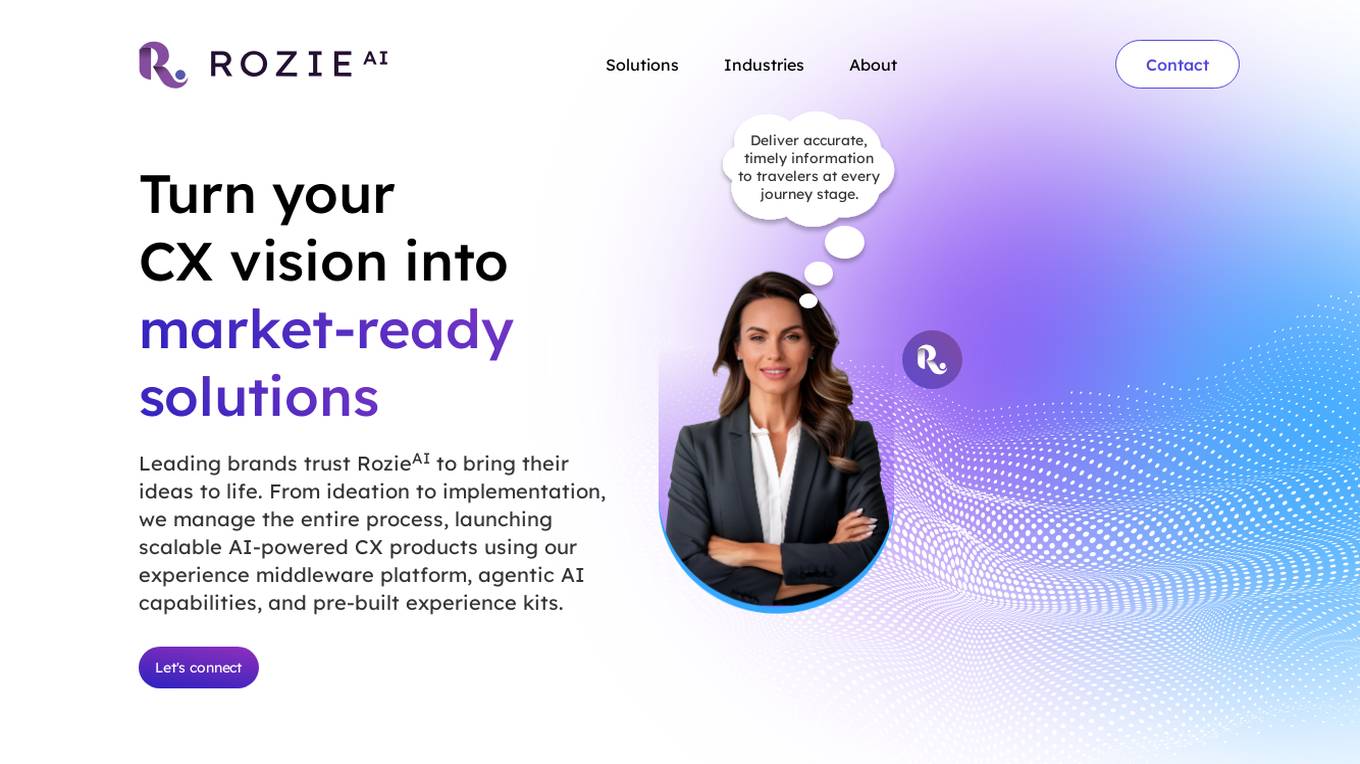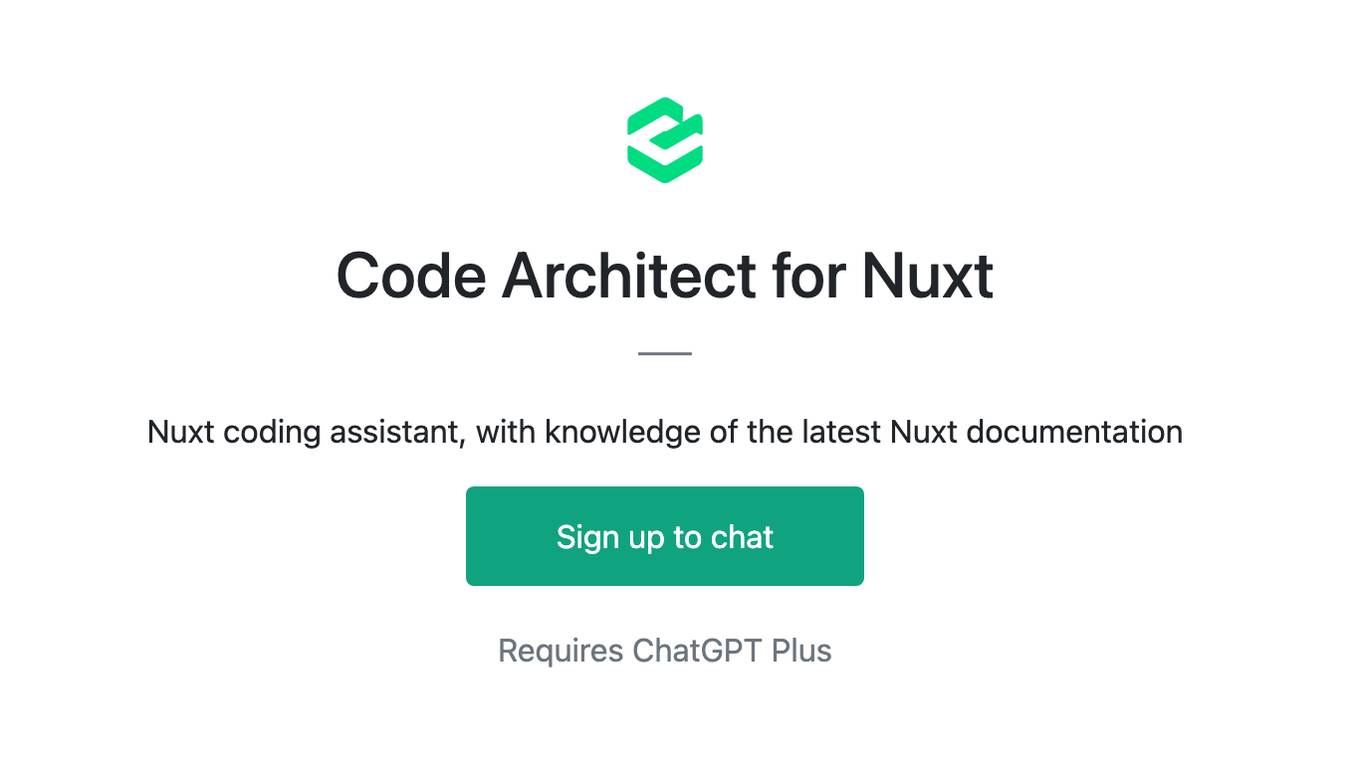Best AI tools for< Middleware Analyst >
Infographic
2 - AI tool Sites

Cloud Observability Middleware
The website provides Full-Stack Cloud Observability services with a focus on Middleware. It offers comprehensive monitoring and analysis tools to help businesses optimize their cloud infrastructure performance. The platform enables users to gain insights into their middleware applications, identify bottlenecks, and improve overall system efficiency.

Rozie AI
Rozie AI is an AI partner that helps create personalized experiences at scale for leading brands. The platform offers a middleware solution, agentic AI capabilities, and pre-built experience kits to manage the entire process from ideation to implementation. Rozie AI specializes in experience design, digital engagement, and applying artificial intelligence to future-proof product experiences. The company empowers clients to own their experiences while off-loading the tech stack maintenance. With customizable solutions, Rozie AI delivers speed, scalability, and control for innovative CX solutions.
0 - Open Source Tools
2 - OpenAI Gpts

Code Architect for Nuxt
Nuxt coding assistant, with knowledge of the latest Nuxt documentation
